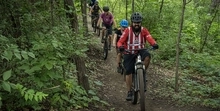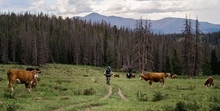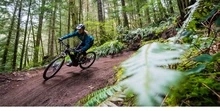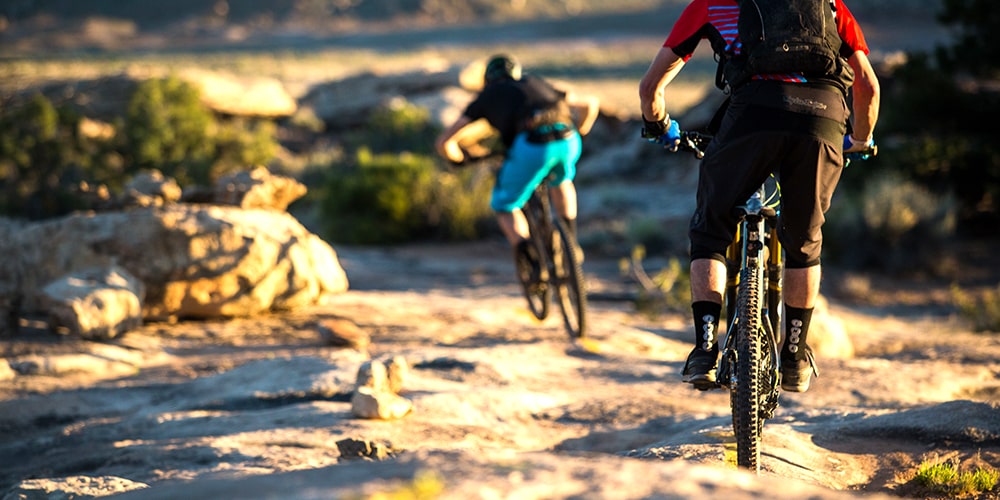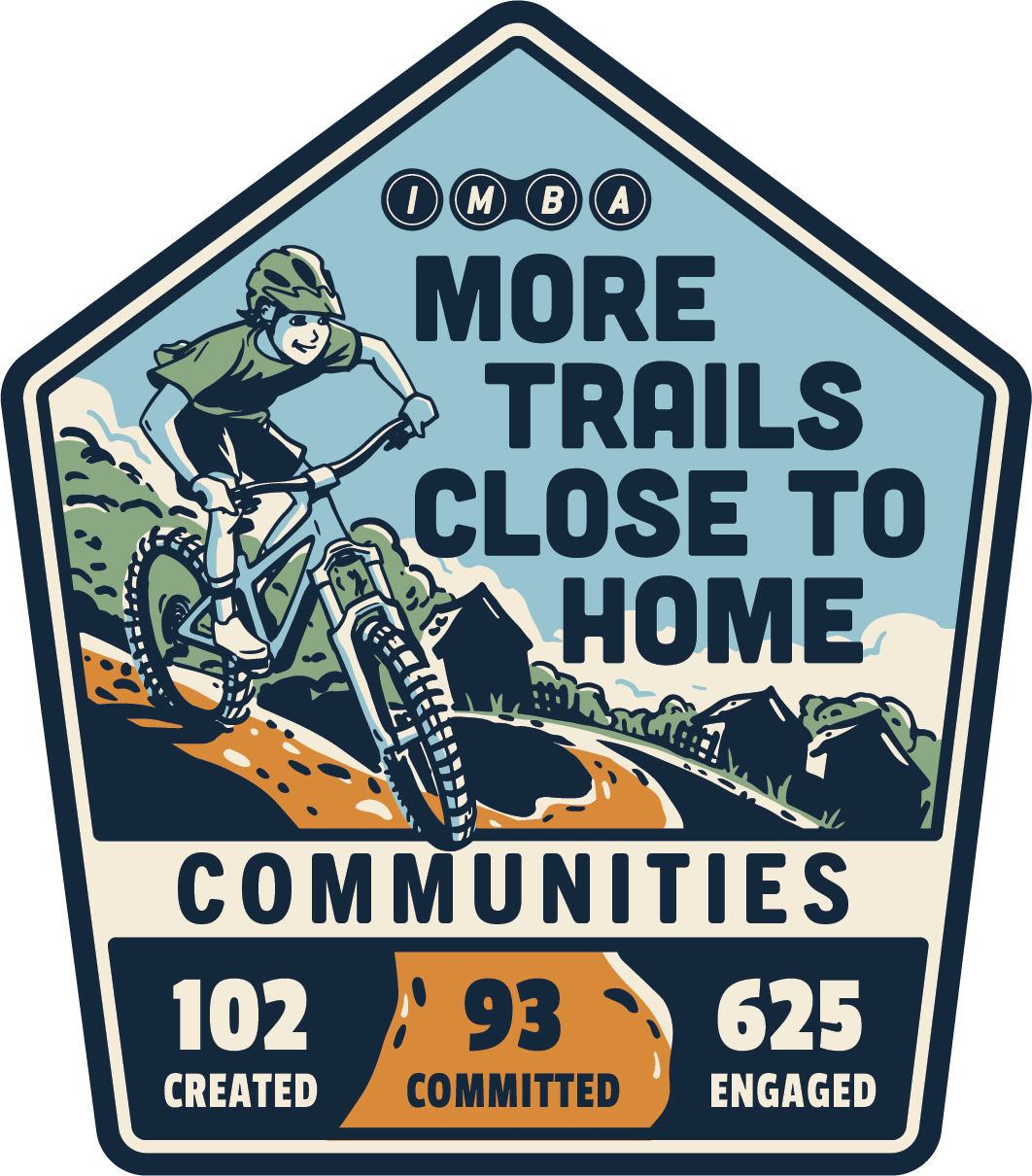Passing a Bill for Mountain Bikers
Like peanut butter and jelly, or Bert and Ernie, parks and trails are better together.
The International Mountain Bicycling Association (IMBA) and Trust for Public Land are partnering to bring great outdoor spaces to more communities, by providing an integrated approach for communities seeking to increase access to open space while adding high-quality trails. One of the common desires of communities partnering with Trust for Public Land is natural surface trails, and one of the best ways to expand mountain biking access is to have new places for trail development. This formal partnership will more readily identify trail opportunities to help communities create great trails more quickly.

One such community is Greeley, Colorado. Trust for Public Land helped the City of Greeley acquire 1,000 acres of land along the Cache de Poudre River, which IMBA is now reviewing for trail opportunities. IMBA’s Trail Solutions team was on-site in June to meet with stakeholders while assessing the land for trail development, a bicycle skills park and in-town connectivity.

Taking feedback from the City of Greeley, landscape architecture firm Mundis Bishop and the area’s diversity of trail users, IMBA is developing a master plan for the community to demonstrate what’s possible and give Greeley a strong tool to move trails forward. With the knowledge that trails will be extremely popular, often seeing hundreds of people per day, IMBA Trail Solutions brought their expertise on the crowding pressures trails often see on Colorado’s Front Range, and strategies for managing so many different land uses.
In a community that’s been largely insulated from Colorado’s reputation for recreation, new trails close to town would provide better outdoor opportunities for thousands of Greeley residents.

Another pilot project is in Ilwaco, Washington, where Trust for Public Land helped the City of Ilwaco acquire the Bear Ridge Community Forest, which protects the community’s drinking water supply. This new open space is also well suited for shared-use and bike-optimized trails in an area that historically has been driven by the timber industry and deep water fishing. IMBA is currently doing community engagement work and field visits to assess feasibility for a comprehensive trail network. A trail master plan is expected in the fall. Adding new outdoor recreation opportunities where the Columbia River meets the Pacific Ocean will draw more diverse tourism to the south end of Washington’s popular Long Beach Peninsula.


“Trust for Public Land and IMBA are natural partners. We have a focus on creating new parks and conservation lands that connect people to the outdoors. IMBA has a focus on helping communities create more trails close to home, so mountain bikers and all trail users have access to great trails. Working together, we can create new parks with great trails,” said J.T. Horn, Trust for Public Land’s Trails Initiative Director.

Trust for Public Land is a national nonprofit that works to connect everyone to the benefits and joys of the outdoors. As a leader in equitable access to the outdoors, TPL works with communities to create parks and protect public land where they are needed most. Since 1972, TPL has protected more than 4 million acres of public land, created more than 5,364 parks, trails, schoolyards, and iconic outdoor places, and raised $93 billion in public funding for parks and public lands. In the past decade, more and more communities that partner with Trust for Public Land have wanted natural surface trails as part of their open space outcome. While Trust for Public Land brings expertise in community engagement, conservation real estate, law and finance, it does not have in-house trail design services. In order to meet this growing demand for trails, Trust for Public Land sought out IMBA as a partner in trail design and construction.
IMBA creates, enhances and protects great places to ride mountain bikes with a focus on more trails close to home. IMBA’s 35 years experience in trail advocacy, education, solutions and stewardship is based on community partnerships with land managers, local organizations and individual trail champions who share visions for great trails. IMBA’s Trail Solutions team has published four books on sustainable trail planning, design, construction and management, informed by more than 750 projects and partnerships around the globe. IMBA knows access to land suitable for trail development is a limiting factor in many communities. In order to develop new trails, it made sense to partner with a conservation organization to create new green space.
“The values, outlook, and expertise shared by IMBA and Trust for Public Land are powerful for recreation,” said Kent McNeill, CEO of IMBA. “By having a national conservation partner, we can help communities with new open space envision and achieve their goals for great trails.”



